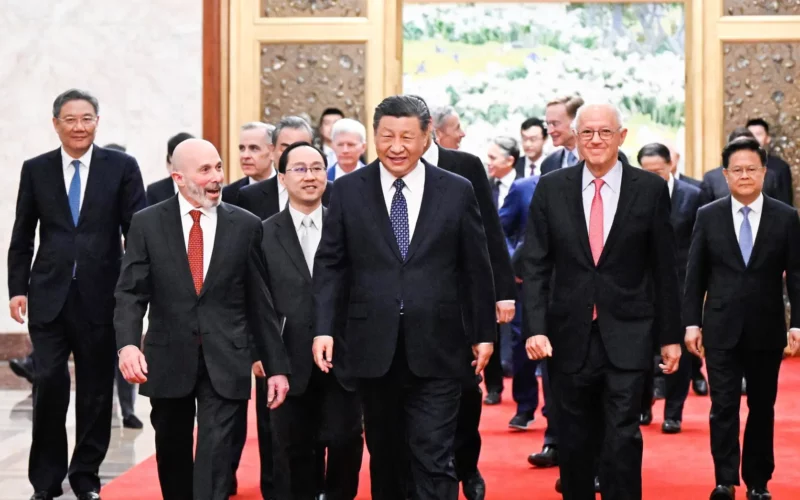In late March, Admiral John C. Aquilino, the commander of the U.S. Indo-Pacific Command, delivered a stark message to congressional leaders on Capitol Hill regarding the escalating military threat posed by the People’s Republic of China. Aquilino highlighted Beijing’s aggressive military expansion, likening it to the most extensive buildup since World War II. His remarks should have resonated not only within the corridors of power but also in corporate boardrooms across America.
Shortly after these warnings, American business leaders convened in Beijing for the China Development Forum to explore investment opportunities in the Chinese market. Representatives from various sectors engaged with Chinese Communist Party officials, including high-profile meetings with Chairman Xi Jinping himself.
Despite the cautionary notes sounded by military leaders, some corporate figures seemed undeterred, emphasizing the importance of the private sector in aligning with China’s national security objectives. However, the stark disparity between military warnings and business pursuits raises questions about the understanding of China’s strategic goals among corporate circles.
Admiral Aquilino’s testimony underscored China’s capability and intent to disrupt the international order, with specific reference to its military modernization and coercive tactics. He also highlighted the interplay between China’s economic prowess and its military ambitions, cautioning against underestimating Beijing’s influence in global affairs.
Meanwhile, at the China Development Forum, there were calls for continued collaboration with China, emphasizing its need for external capital, technology, and expertise. However, such pursuits come with inherent risks, including intellectual property theft, supply chain vulnerabilities, and exposure to geopolitical tensions.
The enduring commercial ties between the U.S. and China have facilitated the latter’s rise as a formidable economic and military power. Yet, the pursuit of short-term gains may jeopardize long-term interests, both in terms of national security and corporate stability.
As American businesses navigate the complexities of the Chinese market, they must heed the warnings of military leaders and assess the broader geopolitical risks. Failure to do so could not only imperil individual companies but also undermine broader U.S. interests in the face of escalating competition with China.
In light of these challenges, it is imperative for corporate decision-makers to reassess their engagement strategies with China, prioritizing the long-term resilience of their businesses and safeguarding national interests.








